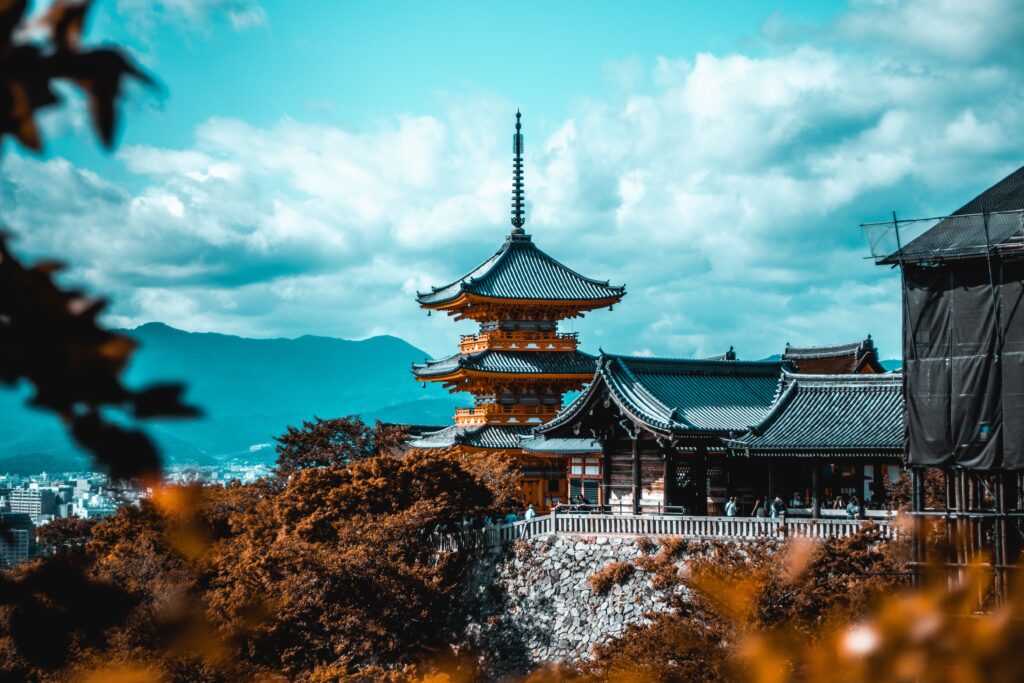目次
10月号【総合】ニュースレター

WIPO地域ダイアログ~アジア太平洋地域における知的財産と中小企業の開催
8月25日、世界知的所有権機関(WIPO)主催の「WIPO地域ダイアログ〜アジア太平洋地域における知的財産と中小企業」がWIPOオフィスで開催された。本イベントでは、アジア太平洋地域を中心に各国知財庁の長官等が集まり、中小企業のパフォーマンスと経済成長における知的財産の基本的な役割について活発な議論が交わされた。
日本国特許庁からは北村審査第一部長が参加し、ダレン・タンWIPO事務局長、タン・コン・フイ(Tan Kong Hwee)シンガポール知財庁長官とともに財庁長官とともに冒頭挨拶を行った。北村部長は、知的財産の活用促進に向けた包括的な知的財産エコシステムの必要性と、その形成における知的財産庁の役割の重要性について述べた。また、日本国特許庁の取組であるスタートアップ支援プログラム「VC-IPAS」を発表し、大きな注目を集めた。
日本国特許庁は今後も、企業が海外においても知的財産を活用し、ビジネスの発展につなげられるよう、国際協力を継続する。
インドでのSEP判決
Ericsson v. Lavaの判決に関し、2025年9月2日にインド最高裁がCCI(競争委員会)の上告を棄却した。
デリー高裁の判断(特許権の行使に関する紛争は原則として特許法が優先し、CCIの調査・審判の射程外とする趣旨)を実質的に維持。加えて、情報提供者側が和解済みで調査の基礎を欠くことも棄却理由として言及している。
EricssonのSEPライセンシング手法につきCCIによる反トラスト調査ルートは事実上封じられ、特許訴訟(高裁=初審管轄)でのFRAND/侵害・損害の枠組みが主戦場であることが確定的になった。
なお、2024年3月28日デリー高裁は、Ericssonの2G/EDGE/3G関連8件のSEPのうち7件の有効性を維持し、Lavaによる侵害を認定した。損害額は24.4億インドルピー(約2,900万USD)。インドのSEP事件で過去最大級の金額となっている。
米国発明法(AIA)に基づく冒認手続に関する初めての CAFC 判決
連邦巡回区控訴裁判所(CAFC)は、8月26日、特許発明の冒認が争われたGlobal Health Solutions LLC (GHS 社)対 Marc Selner(Selner 氏)事件において、USPTO 特許審判部(PTAB)の決定を支持し、Selner 氏による独自の発明であること(冒認がなかったこと)を認めた。
米国では、米国発明法(AIA)の施行まで先発明主義が採用されており、権利者に関する争いについて、最先の発明者を特定するためのインターフェアランス手続が行われていた。冒認手続(derivation proceeding)は、AIA の施行により新設された手続であり、先願主義を前提として、先行する特許出願が冒認によるものである場合に、その発明の由来(冒認の有無)を争うものである。
本判決は上述の冒認手続に関して CAFCが初めて判断を示したものであり、CAFCは、インターフェアランス手続と冒認手続との相違の観点でPTABの判断に一部誤りがあったことを指摘しつつも、結論においてその決定内容を支持した。
令和7年度特許審査の質についてのユーザー評価調査報告書
9月10日、特許庁は、特許審査の質についてのユーザー評価調査(令和7年度調査)の結果を報告書に取りまとめた。特許審査に対するユーザー(出願人や権利を行使される第三者等)の皆様のニーズや期待を適切に把握することが不可欠であるとの認識のもと、特許庁は、平成24年度より特許審査の質についてのユーザー評価調査を実施している。
本報告書は、令和6年度の特許審査・国際調査等全般の質について「満足」、「比較的満足」、「普通」、「比較的不満」、「不満」の5段階で評価いただいた結果を取りまとめたもの。調査は令和7年4月~6月に実施し、回答率は約8割だった。
国内出願における特許審査全般の質についての評価(全体評価)は、上位評価割合(「満足」・「比較的満足」の評価の割合)が60.7%、「普通」以上の評価の割合が95.7%であった。
PCT出願における国際調査等全般の質についての評価(全体評価)は、上位評価割合が59.1%、「普通」以上の評価の割合が96.8%であった。
分析の結果、国内出願において、「判断の均質性」、「第29条第2項(進歩性)の判断の均質性」の項目が、全体評価への影響が大きく、かつ相対的な評価が低いため、これらを優先的に取り組むべき項目と設定したとのことであり、今後も、審査に関する統計データを活用しつつ、審査官間の協議等を通じた審査官相互の知識の共有を進め、判断の均質性の向上に取り組むとしている。
国際知財司法シンポジウム2025の開催
知財紛争に関する司法判断や近時の知財トピックについて、各国の法曹関係者や審判官等がディスカッション等を行う「国際知財司法シンポジウム」(JSIP)が10月23日と24日に開催される。
9回目となる今回のシンポジウムは、日本、米国、欧州、韓国、中国及びASEAN諸国から裁判官・弁護士・審判官・弁理士等の実務家が参加し、開催形式は、会場での対面開催をするほか、インターネットによるライブ配信も行われる。
初日の主催者合同企画では、海外から知財分野で活躍されている米国、欧州、韓国の現職裁判官が参加し、まず、知的財産高等裁判所長及び特許庁審判部長による「知財高裁・知財行政の20年の歩み」と題する基調講演の後、日本の裁判官及び弁護士と海外から参加した裁判官のほか、特許庁審判部長、弁理士との間で、「知財分野の国際的動向、知財分野の専門裁判所が果たす役割」をテーマとするパネルディスカッションが行われる。このパネルディスカッションでは、知的財産高等裁判所20周年の節目として、各国裁判官から自国における20年の知財分野の発展を紹介し、それを踏まえて知財分野の専門裁判所・知財庁が果たすべき役割等について意見交換が行われる。また、知的財産高等裁判所が担当するプログラムでは、日本の裁判官及び弁護士と海外から参加した裁判官との間で、「激動する時代とこれからの知財司法」をテーマとし、更に高度化する専門性への対応、広く社会の実情を踏まえた判断の方策等について意見交換が行われる。
Newsletter translated into English

WIPO Dialogue on IP and SMEs in Asia and the Pacific Region Held
On August 25, the “WIPO Dialogue on IP and SMEs in Asia and the Pacific Region”, organized by the World Intellectual Property Organization (WIPO) was held at the WIPO office. At this event, heads of intellectual property offices from countries primarily in the Asia-Pacific region gathered and engaged in active discussions on the fundamental role of intellectual property in the performance of small and medium-sized enterprises (SMEs) and in economic growth.
From the Japan Patent Office (JPO), Director-General Kitamura of the First Examination Department participated and delivered the opening remarks together with Mr. Daren Tang, Director General of WIPO, and Mr. Tan Kong Hwee, Chief Executive of the Intellectual Property Office of Singapore. Director-General Kitamura spoke about the necessity of a comprehensive intellectual property ecosystem to promote the utilization of intellectual property, as well as the importance of the roles played by patent offices in its establishment. He also introduced the JPO’s startup support program “VC-IPAS,” which drew significant attention.
The JPO will continue to pursue international cooperation so that enterprises can make use of intellectual property overseas, thereby promoting the development of their businesses.
SEP Judgment in India
On September 2, 2025, the Supreme Court of India dismissed the appeal filed by the Competition Commission of India (CCI) in relation to the Ericsson v. Lava judgment.
This effectively upheld the decision of the Delhi High Court, which held that disputes concerning the exercise of patent rights are, in principle, governed by the Patent Act and thus fall outside the scope of CCI’s investigation and adjudicatory powers. In addition, the Supreme Court noted that the information provider had already reached a settlement, thereby eliminating the basis for further investigation, which also formed part of the reasoning for dismissal.
As a result, the route for an antitrust investigation by the CCI with respect to Ericsson’s SEP licensing practices has been effectively closed off, confirming that the main battleground will lie in patent litigation (before a High Court as first instance), within the framework of FRAND, infringement, and damages.
Notably, on March 28, 2024, the Delhi High Court upheld the validity of 7 out of 8 SEPs held by Ericsson related to 2G/EDGE/3G technologies and found Lava to have infringed them. The damages awarded amounted to INR 2.44 billion (approximately USD 29 million), one of the largest sums ever in an SEP case in India.
The First CAFC Decision on Derivation Proceedings under the America Invents Act (AIA)
On August 26, the Court of Appeals for the Federal Circuit (CAFC) upheld a decision of the USPTO Patent Trial and Appeal Board (PTAB) in the case of Global Health Solutions LLC (GHS) v. Marc Selner, which concerned the issue of derivation of a patented invention. The CAFC recognized that the invention in question was Selner’s own original invention and that no derivation had occurred.
Prior to the enactment of the America Invents Act (AIA), the United States employed a first-to-invent system. Disputes over entitlement to rights were resolved through interference proceedings, which were conducted to determine the earliest inventor. A derivation proceeding, newly established under the enactment of the AIA, is a procedure, based on the first-to-file principle, in which the origin of an invention (i.e., whether it was derived or not) is contested when an earlier patent application is alleged to have been filed through derivation.
This judgment represents the first time that the CAFC has rendered a decision regarding the aforementioned derivation proceeding. While the CAFC pointed out certain errors in the PTAB’s judgment from the perspective of the differences between an interference proceeding and a derivation proceeding, it ultimately upheld the substance of the PTAB’s decision.
User Evaluation Survey Report on the Quality of Patent Examination in 2025
On September 10, the Japan Patent Office (JPO) compiled the results of the User Evaluation Survey on the Quality of Patent Examination (survey of 2025) into a report. Recognizing that it is essential to accurately understand the needs and expectations of users regarding patent examinations (such as applicants and third parties subject to the exercise of patent rights), the JPO has been conducting user evaluation surveys on the quality of patent examination since 2012.
This report summarizes the results of evaluations, conducted on a five-level scale (“satisfied,” “relatively satisfied,” “neutral,” “relatively dissatisfied,” and “dissatisfied”), concerning the overall quality of patent examinations and international searches in 2024. The survey was conducted from April to June 2025, with a response rate of approximately 80%.
Regarding the assessment (overall evaluation) of the overall quality of patent examinations for domestic applications, the ratio of higher ratings (“satisfied” and “relatively satisfied”) was 60.7%, while the ratio of evaluations of “neutral” or above reached 95.7%.
Regarding the assessment (overall evaluation) of the overall quality of international searches and related procedures for PCT applications, the ratio of higher ratings was 59.1%, while the ratio of evaluations of “neutral” or above reached 96.8%.
According to the analysis, for domestic applications, “consistency of judgment” and “consistency of judgment on Article 29(2) (inventive step)” had a significant impact on overall evaluation but received relatively lower ratings. Therefore, these items were identified as priority areas for improvement. Going forward, the JPO will continue to work on enhancing the consistency of judgments by utilizing statistical data related to examinations and promoting knowledge-sharing among examiners through discussions between examiners and other means.
Judicial Symposium on Intellectual Property / TOKYO 2025 Held
The “Judicial Symposium on Intellectual Property” (JSIP), where legal professionals, trial examiners, and other experts from various countries will discuss judicial decisions on IP disputes and recent IP topics, will be held on October 23 and 24.
This symposium, now in its 9th session, will bring together practitioners such as judges, attorneys, trial examiners, and patent attorneys from Japan, the United States, Europe, South Korea, China, and ASEAN countries. The format will be an in person symposium at the venue accompanied by a live-stream on the internet.
At the plenary session on the first day, sitting judges from the United States, Europe, and South Korea active in the IP field will participate. Following a keynote lecture titled “Twenty 20 Years of the IP High Court and IP Administration”, delivered by the Chief Judge of the IP High Court and the Chief Trial Examiner of the JPO, a panel discussion will take place among Japanese judges and attorneys, overseas judges, the Chief Trial Examiner of the JPO, and patent attorneys. The theme of this discussion will be “International Trends in the IP Field and the Role of Specialized IP Courts”. Marking the 20th anniversary of the IP High Court, judges from each country will introduce the developments in the field of intellectual property in their respective country over the past 20 years. Then, based on these introductions, opinions will be shared regarding the roles that specialized IP courts and patent offices should fulfill. In addition, under a program hosted by the IP High Court, Japanese judges and attorneys will engage in discussions with participating overseas judges on the theme of “IP Justice in a Rapidly Changing Society”. The discussion will address responses to the increasing sophistication of expertise, as well as approaches to rulings that take into account broader social realities.
